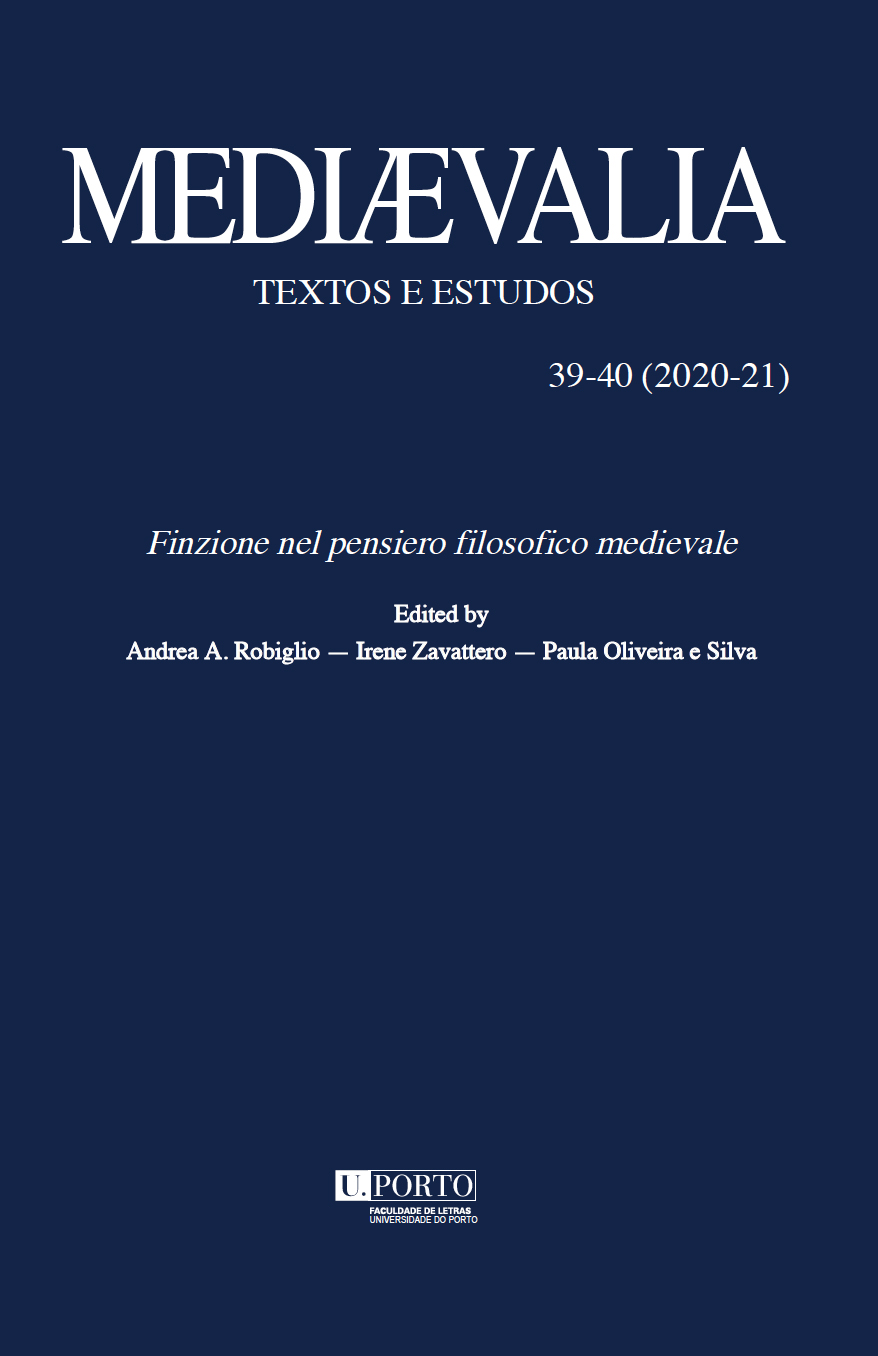Suppositiones pro istis dubiis solvendis. Futuri contingenti e profezie nel Tractatus de praedestinatione et de praescientia Dei respectu futurorum contingentium di Guglielmo di Ockham
Resumo
Nel Tractatus de praedestinatione et de praescientia Dei respectu futurorum contingentium, Guglielmo di Ockham usa il termine suppositio con un significato diverso rispetto alla Summa Logicae, in quanto passa a indicare la traduzione di ὑπόϑεσις nel primo libro degli Analitici Secondi. Scopo della nostra analisi sarà mostrare come le suppositiones rivestano, nel ragionamento teologico di Ockham, la stessa funzione delle premesse necessarie – benché indimostrate – nel ragionamento scientifico descritto dallo Stagirita: esse infatti hanno carattere di indimostrabilità, provenendo da un atto di credenza, ma al contempo di necessità, quale fondamento di un ragionamento logico-dimostrativo per oggetti che possono presentarsi solo in forma “fittizia” all’apprensione dell’intelletto, come futuri contingenti e profezie. Poste tali suppositiones a fondamento del ragionamento teologico, mostreremo come questo poi si muova, in Ockham, con la consequenzialità della logica proposizionale, così da legittimare lo statuto di scientificità per la scienza profetica e, nel contempo, salvare la libertà dell’uomo di agire diversamente, affermando la propria libera scelta. Chiave dell’argomentazione sarà la distinzione fra proposizioni al presente secundum rem e secundum vocem, da intendere non quale espediente puramente linguistico ad hoc per eludere la questione della conoscibilità dei futuri contingenti, bensì come fictio o suppositio necessaria ad accorciare la catena causale tra res e atti cognitivi che vi si riferiscono, in coerenza con la parsimonia ontologica della teologia di Ockham.
Parole chiave: Suppositio; futuri contingenti; profezia; prescienza; logica della credenza, libero arbitrio.
Autori antichi e medievali: Aristotele, Guglielmo di Ockham; Walter Chatton; Adam Wodeham; Gregorio da Rimini.
DOI: http://doi.org/10.21747/21836884/med40a7
Downloads
Publicado
Edição
Secção
Licença
Direitos de Autor (c) 2023 Riccardo Fedriga, Roberto Limonta

Este trabalho encontra-se publicado com a Licença Internacional Creative Commons Atribuição-NãoComercial-SemDerivações 4.0.






